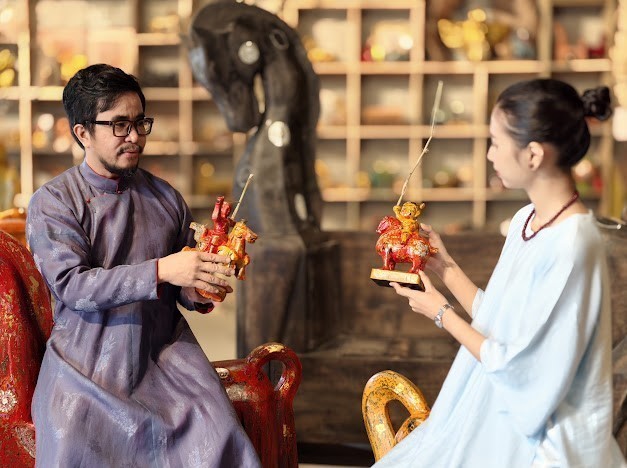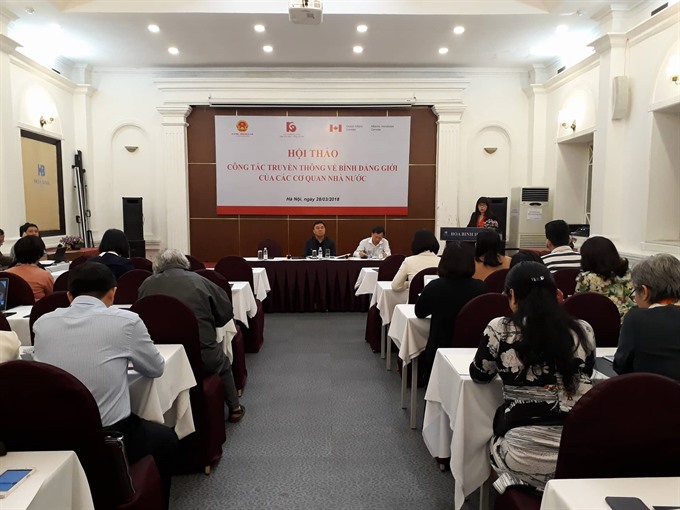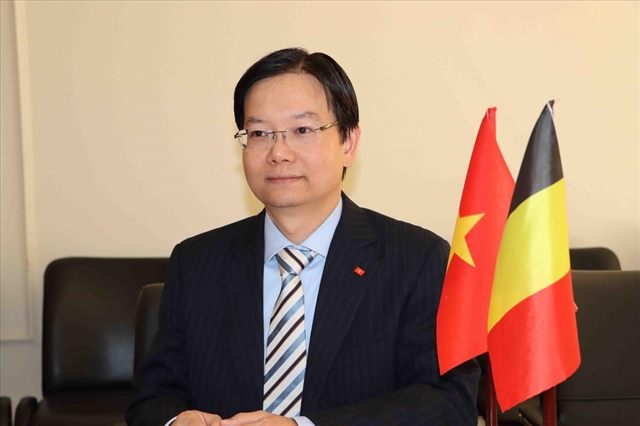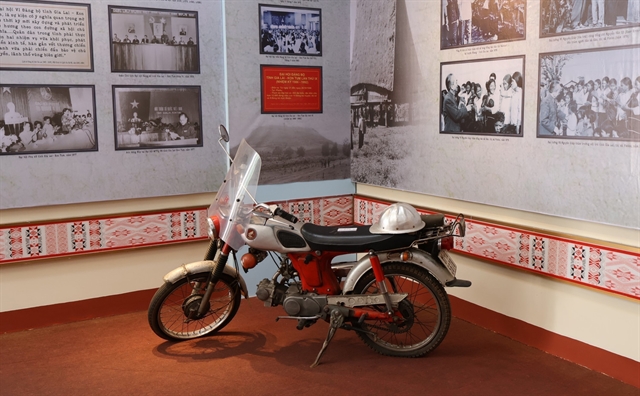 Society
Society

Experts agreed on the definition of gender equality at a workshop, "Communication on gender equality of state agencies," held here on Wednesday.
 |
| Representatives discuss gender equality issues during the workshop. — VNS Photo Thu Trang |
HÀ NỘI — Experts agreed on the definition of gender equality at a workshop, "Communication on gender equality of state agencies," held here on Wednesday.
The concept of gender equality suggests that men and women, including the gay and lesbian community, should receive fair treatment in all aspects of socio-economic life and human rights.
The workshop was organised by the Research and Development Centre (RED) under the Vietnam Union of Scientific and Technological Organisations (VUSTA) in collaboration with the Department of Gender Equality under the Ministry of Labour, Invalids and Social Affairs.The workshop is part of the project "Media Co-operation to Improve Economic Policy", supported by the Government of Canada Global Issues. Participants discussed various issues, including how the media implements eight sectors in the Law on Gender Equality, and how to do the work well.
Education on gender and gender equality should not include gender bias, should not create gender-based prejudice and should eliminate all gender discrimination. Phạm Ngọc Tiến, director of the Department of Gender Equality, said this was still a new issue for many state agencies, although the Gender Equality Law and Decree 48/2009/NĐ-CP has regulations on this subject. Over the years, education on gender equality has been fully adopted in the Tuyên Quang and Long An provinces and in HCM City. The MOLISA organised a number of activities to provide education on the issue.
However, some of the objectives of the national strategy for gender equality in the period 2011-20 were unsuitable and needed more time to complete, he said.
Education on the issue still focuses on women, and gender stereotypes persist in media products. For instance, 80 per cent emphasise the role of women in the family, 83 per cent of women appear as a housewife.Trần Thị Kim Thanh, director of the Division of Child Care and Protection under the HCM City Department of Labour, Invalids and Social Affairs, highlighted the current difficulties in communication on gender equality.
Thanh mentioned the overly broad topics on gender equality and the lack of instruction from the concerned ministries. Moreover, the staff of gender equality departments in provinces have not been trained on the Law on Gender Equality.
In seeking a solution, the participants of the workshop believed that education on gender equality was not only the duty of the MOLISA but should also be considered in the management and planning of policies of all state administrative agencies.
Education activities require the coordination of specialised agencies and state agencies, political and social organisations and personnel networks. — VNS




